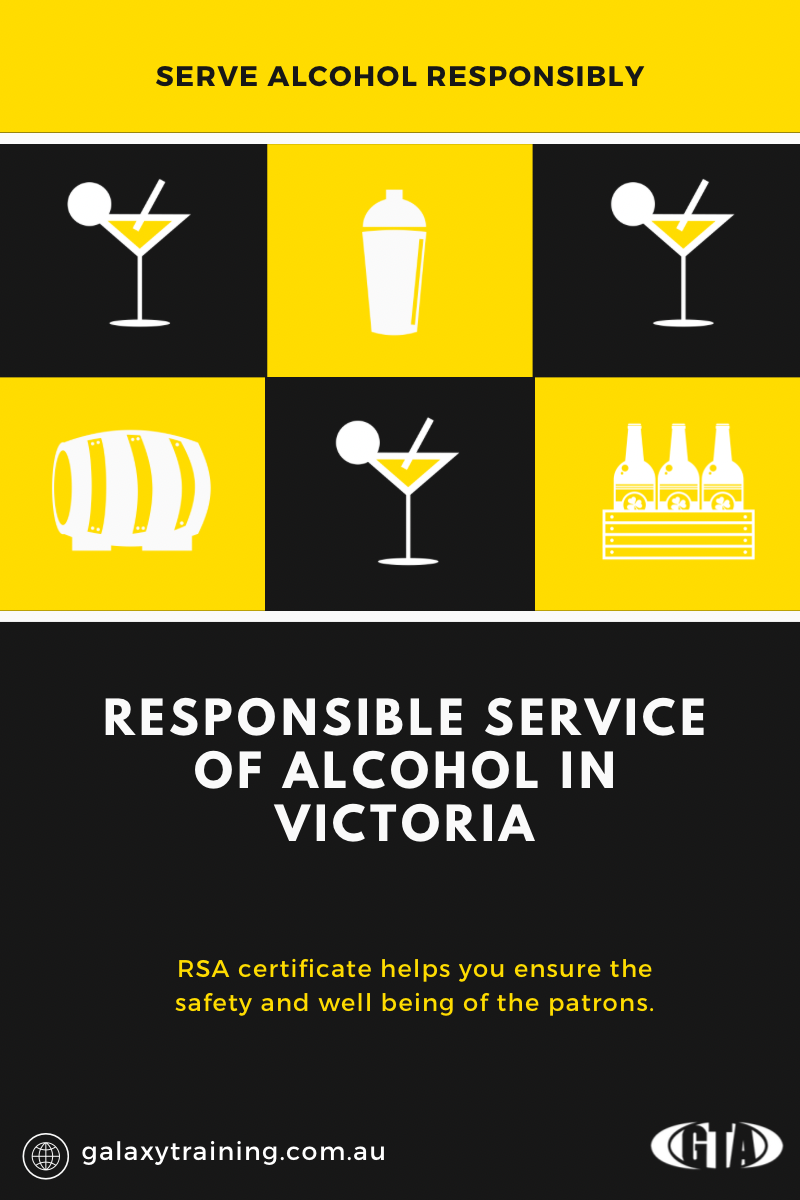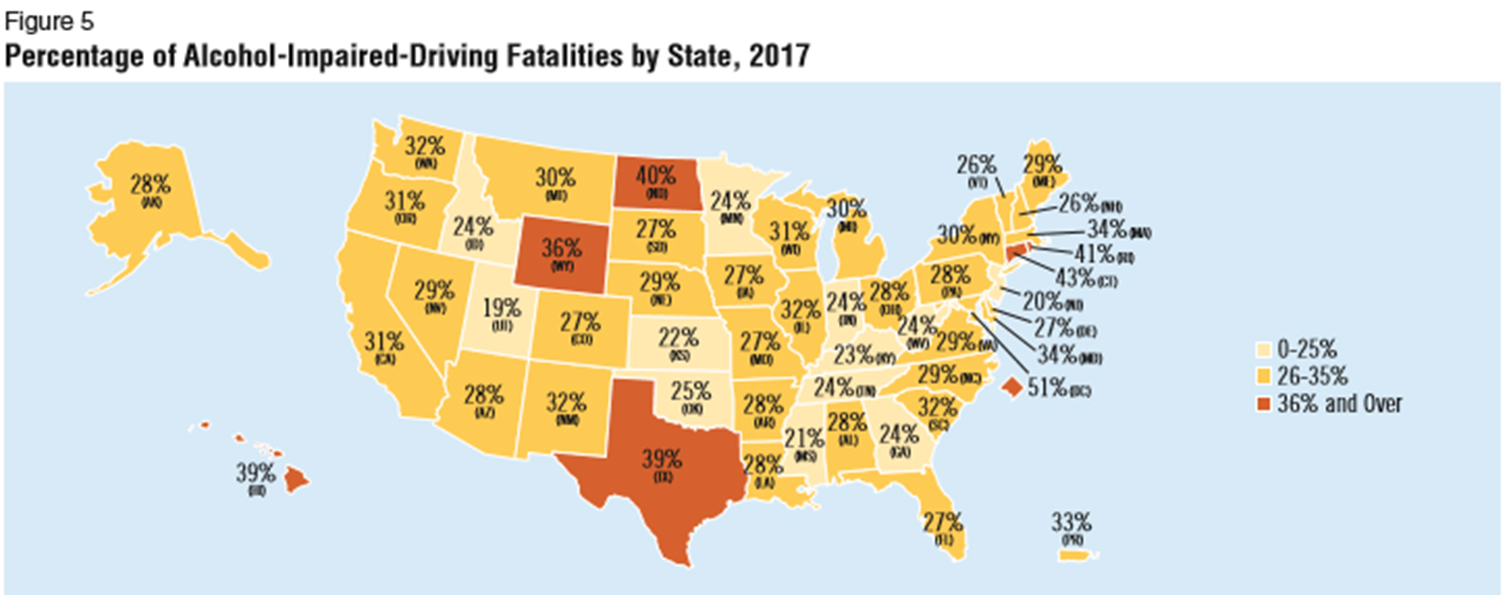Why You Need servsafe alcohol certification for Your Job in Food Service
Why You Need servsafe alcohol certification for Your Job in Food Service
Blog Article
Master Accountable Alcohol Service With Comprehensive Certification Programs
The mastery of responsible alcohol solution is not merely a regulative requirement; it is a basic component that enhances the online reputation and operational stability of establishments within the friendliness market. Comprehensive certification programs offer very useful understandings into neighborhood laws, efficient intervention techniques, and consumer engagement techniques. By purchasing these training campaigns, organizations can cultivate a society of obligation among their team, mitigating risks and improving consumer satisfaction. The course to effective execution and its long-term advantages might not be as simple as it appears. What obstacles lie ahead for those that seek to raise their solution requirements?

Value of Liable Alcohol Service
Responsible alcohol solution is necessary to advertising public wellness and security in facilities that serve alcoholic drinks. It includes a variety of methods designed to stop the overconsumption of alcohol, lower the threat of alcohol-related harm, and guarantee a safe atmosphere for patrons and personnel alike. By supporting accountable service standards, establishments can mitigate possible occurrences of drunkenness, which may lead to crashes, violence, or various other negative results.
Moreover, liable alcohol service improves the general consumer experience. Furthermore, establishments that adhere to liable service methods frequently experience lower insurance coverage premiums and lowered lawful liabilities.
Moreover, executing liable alcohol solution techniques lines up with broader public wellness initiatives intended at reducing chemical abuse and advertising area wellness. This proactive technique not just secures private customers yet additionally adds to a healthier society. Ultimately, accountable alcohol service is not merely a lawful commitment; it represents a moral dedication to the well-being of consumers and the community at large.
Trick Elements of Qualification Programs
Certification programs for responsible alcohol service commonly encompass a number of vital parts developed to gear up personnel with the needed abilities and understanding to serve alcohol securely. Most importantly, these programs often include thorough training on regional and state alcohol laws, making certain that participants comprehend their lawful commitments and the consequences of failing to abide.
An additional important component is the recognition of signs of intoxication - servsafe food handlers card. Staff are trained to identify behavior cues suggesting when a client may be over-served, enabling them to interfere appropriately
Furthermore, efficient interaction approaches are highlighted, teaching personnel how to engage with consumers in a way that advertises accountable drinking. This includes training in problem resolution methods, permitting team to manage tough circumstances calmly and expertly.
In addition, programs regularly incorporate functional situations and role-playing exercises, offering participants with real-life instances to exercise their abilities. Finally, ongoing education and sources are necessary for preserving knowledge and skills over time, as laws and best practices develop. With each other, these components develop a thorough framework that empowers staff to foster a more secure alcohol consumption environment while minimizing obligation for establishments.
Advantages for Staff and Establishments
Team and facilities alike reap substantial benefits from taking part in accountable alcohol service certification programs. For team, these programs boost knowledge and skills associated with alcohol solution, equipping them to identify indicators of drunkenness and implement reliable treatment techniques. This training not just cultivates a feeling of confidence amongst workers but additionally advertises a society of safety and security and duty in the work environment.
For facilities, spending in certification programs can result in reduced obligation and less incidents related to over-serving. By making certain that personnel are trained in responsible solution techniques, establishments can reduce risks connected with alcohol-related events, therefore safeguarding important link their credibility and economic security. Numerous jurisdictions supply incentives, such as lower insurance policy premiums, for licensed facilities.
In addition, executing qualified practices can boost consumer contentment and loyalty. Patrons are more probable to go back to locations that prioritize their safety and security and well-being. Eventually, a commitment to accountable alcohol solution my link not only cultivates a favorable atmosphere but likewise boosts the overall functional performance of facilities, making it a clever investment for long-lasting success in the friendliness market.
Usual Difficulties in Alcohol Service
Guaranteeing effective alcohol service is not without its obstacles, even in establishments devoted to responsible methods. One considerable obstacle is the demand for personnel to precisely assess customers' alcohol usage degrees. servsafe food handlers card. This needs an eager understanding of exactly how different elements, such as food consumption, tolerance, and individual distinctions, influence intoxication
In addition, the stress to make best use of sales can contrast with liable solution protocols. Employees may deal with difficulties in rejecting service to inebriated individuals, especially in social atmospheres where peer pressure and expectations are prevalent.
Another obstacle is remaining upgraded with neighborhood laws and policies relating to alcohol service. Compliance is vital, yet regular modifications more helpful hints in regulations can create confusion and may lead to unintentional violations.
Training programs might not always cover the nuances of real-world circumstances, leaving staff ill-equipped to manage intricate circumstances. Inconsistent communication between management and workers regarding expectations for responsible solution can better intensify these concerns.
To browse these challenges effectively, facilities must foster a setting of support, stressing the value of liable solution while giving the essential tools and training for team to do well.
Steps to Get Accreditation
To acquire Responsible Alcohol Solution Qualification, applicants usually start by researching the specific needs mandated by their regional regulatory authorities. These needs may differ considerably depending on the region, so it is necessary to familiarize oneself with the relevant laws and regulations.

After picking a program, applicants should complete the requisite training, which typically covers topics such as determining intoxication, understanding legal responsibilities, and implementing methods for liable solution. Individuals ought to proactively engage with the material, as this expertise is vital for reliable alcohol solution.

Adhering to training, prospects commonly take an examination to evaluate their understanding of the product. Successful completion of this evaluation causes qualification.
Verdict
To conclude, mastering liable alcohol solution via extensive certification programs is essential for advertising safety and boosting consumer experiences within the friendliness sector. By outfitting personnel with the essential understanding and skills, establishments not just reduce threats associated with overconsumption and lawful liabilities yet additionally grow a culture of obligation. This dedication to accountable solution inevitably results in boosted consumer loyalty and functional success, reinforcing the value of ongoing training and adherence to alcohol solution criteria.
Report this page